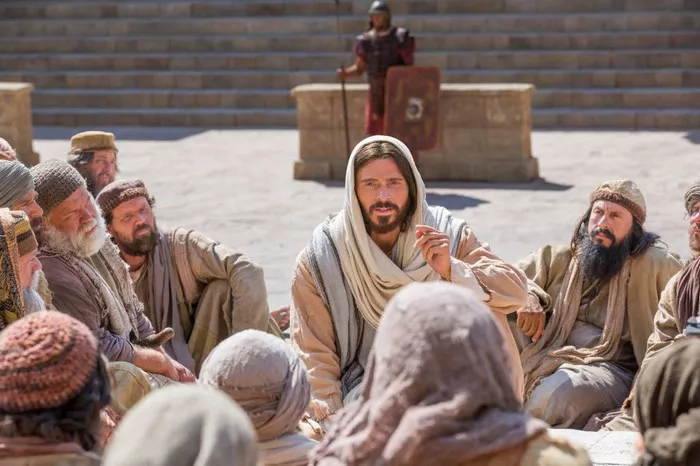Hinduism, one of the world’s oldest and most diverse religious traditions, encompasses a wide array of beliefs and practices. As such, Hindu views on Jesus Christ are equally varied and nuanced. This article delves into the Hindu understanding of Jesus, exploring the theological, philosophical, and cultural dimensions of this relationship.
Jesus in Hindu Texts and Teachings
Hindu scriptures do not mention Jesus directly, as they predate his life by several centuries. However, Hindu scholars and spiritual leaders have interpreted Jesus’s life and teachings in ways that resonate with Hindu philosophy. The Bhagavad Gita, the Upanishads, and other sacred texts emphasize universal truths that many Hindus find reflected in Jesus’s message.
Jesus as a Sadhu or Yogi
Many Hindus regard Jesus as a sadhu (holy man) or a yogi (spiritual practitioner). This perspective emphasizes Jesus’s ascetic lifestyle, his commitment to meditation and prayer, and his teachings on love and compassion. These attributes align closely with the Hindu ideal of a spiritually enlightened individual. For instance, Jesus’s time spent in the wilderness, fasting and praying, mirrors the practices of Hindu sadhus who seek spiritual growth through renunciation and meditation.
Jesus as an Avatar
Some Hindus view Jesus as an avatar, or an incarnation of the Divine. In Hinduism, an avatar is a deity who descends to earth to restore dharma (cosmic order) and guide humanity. This interpretation places Jesus alongside figures like Krishna and Rama, who are considered divine incarnations in Hindu tradition. By this understanding, Jesus’s life and sacrifice are seen as part of a divine plan to uplift humanity and teach eternal truths.
Comparative Theology: Jesus and Krishna
A fascinating area of study for Hindu scholars is the comparison between Jesus and Krishna. Both are seen as divine figures who came to earth to guide and save humanity. The similarities between their teachings and lives are often highlighted in comparative theology. For example, the concept of bhakti (devotion) in the Bhagavad Gita is akin to Jesus’s emphasis on love and personal relationship with God. This parallel allows Hindus to appreciate Jesus’s message within their own religious framework.
Jesus in the Works of Modern Hindu Thinkers
Prominent Hindu thinkers and leaders have written extensively about Jesus, often expressing profound respect and admiration for his teachings. Swami Vivekananda, a key figure in the introduction of Vedanta and Yoga to the Western world, spoke highly of Jesus, seeing him as an exemplar of renunciation and divine love. Similarly, Mahatma Gandhi, who drew heavily from Hindu and Christian teachings, revered Jesus as a martyr and a paragon of nonviolent resistance.
The Universal Christ
Some modern Hindu teachers, such as Sri Ramakrishna and Paramahansa Yogananda, have presented Jesus as a universal figure whose message transcends religious boundaries. Yogananda’s book, “The Second Coming of Christ,” interprets Jesus’s teachings through the lens of Kriya Yoga, suggesting that the essence of Christ’s message is a universal spiritual truth that can be realized through personal experience and inner transformation.
Jesus and the Concept of Sanatana Dharma
Sanatana Dharma, meaning “eternal duty” or “eternal order,” is a term often used to describe the timeless truths at the heart of Hinduism. Many Hindus see Jesus’s teachings as aligning with these eternal principles. His emphasis on love, compassion, forgiveness, and service resonates deeply with the ethical and spiritual values upheld in Hinduism. By this view, Jesus’s life and message are seen not as foreign or separate, but as another expression of the universal truth that Hinduism seeks to embody.
Interfaith Dialogue and Harmony
In contemporary times, Hindu and Christian communities have engaged in interfaith dialogue, exploring common ground and celebrating shared values. These interactions foster mutual respect and understanding, emphasizing that different religious traditions can coexist peacefully and contribute to a more harmonious world. The Hindu recognition of Jesus as a holy figure is a testament to this spirit of inclusivity and respect for diverse paths to the Divine.
Jesus in Hindu Festivals and Rituals
While Jesus is not traditionally worshipped in Hindu rituals, there are instances where his life and teachings are honored in a Hindu context. Some Hindus participate in Christmas celebrations, seeing it as an opportunity to honor the birth of a great spiritual teacher. Additionally, in multicultural and interfaith families, there is often a blending of traditions, where elements of Hindu and Christian practices are observed together.
Challenges and Controversies
Despite the generally positive view of Jesus among Hindus, there are challenges and controversies, particularly concerning proselytization. Some Hindus perceive missionary activities as a threat to their religious and cultural identity, leading to tensions between Hindu and Christian communities. However, these issues are often more about the socio-political dynamics than theological differences, and efforts towards respectful dialogue and understanding continue to be important.
Conclusion
Hinduism’s inherent pluralism allows for a broad and inclusive understanding of Jesus. Whether seen as a holy man, a divine avatar, or a universal spiritual teacher, Jesus’s life and teachings find resonance within the Hindu worldview. This pluralistic approach underscores the Hindu belief in the multiplicity of paths to the Divine, embracing the idea that truth can be found in many forms and expressions. Through this lens, Jesus is honored as a significant spiritual figure whose message of love, compassion, and selflessness continues to inspire Hindus around the world.


